6 Reasons Why Your Coffee Tastes Bitter? (Solved)
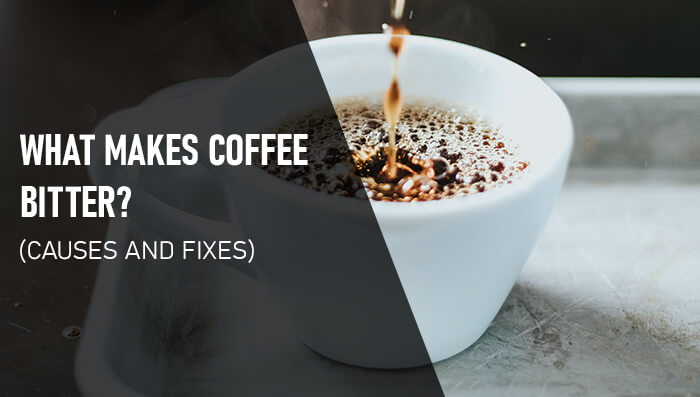
Waking up in the morning with your one eye open and half mind sleeping only “a strong cup of coffee” can pull you out of this status. For a coffeeholic, a strong, robust, and hot coffee is a dream of heaven.
But have you ever encountered a situation when you take a sip of your joe and frown? You stick your tongue out, and guess what makes my coffee bitter? If you are a coffee lover, it might happen to you and many new coffee enthusiasts who have just embraced the love of coffee.
Sometimes, your coffee won’t kick you to start your day and won’t delight your taste buds. If you are going through this nuisance and think your coffee’s bitterness is bad. This article might be a lifesaver for you.
Bitterness Isn’t a flaw.
Not all cultures are familiar with the taste of bitterness. So “bitter” is commonly associated with “bad,” therefore the intense level of bitterness isn’t usually welcome in any food. The same goes for bitter coffee.
Many new coffee drinkers perceive strong coffee as bitter. When the first time you try a stronger coffee, it might not be great for you. But each time, it will taste weaker because you’re getting used to tasting the bitterness and exploring other flavor notes.
Despite this, many coffee lovers find pleasure in intense flavors. The bitterness comes far after the bunch of flavors they get in a single cup of coffee. For coffee snobs, slight bitterness in coffee enhances the in-depth flavor profile.
When it comes to brewing coffee, balance is essential. Too much of any one flavor can ruin your cup of coffee, so it is necessary to find the right balance of all the flavors. The extreme of any taste is unpleasant, whether sweet, sour, or savory.
However, if suddenly your coffee tastes bitter and overshadows the other flavors, it might be a matter of concern. So, let’s steer our discussion to “why does your coffee taste bitter?.”
Why does my coffee taste bitter (Causes and fixes)
There could be several issues you should check if you are running into a problem of bitter coffee. You can find various types of coffee beans, like Arabica, Robusta, etc. Each one has its own unique flavor profile. Different roasts can also bring out different flavors in coffee, like light, dark, or somewhere in between. And different ways to grind the beans, your equipment, and your brewing method all impact the final taste of your cup of coffee.
Let’s discuss each of them to know what causes a bitter flavor and how you can settle the problem.
1. You are steeping too long and over Extraction.
You extract the flavors from your coffee grounds by brewing the coffee. The more you brew, the richer taste you get. But as they say, ‘excess of everything is bad’. The same goes for coffee brewing. Over brewing breaks down the coffee grounds, resulting in an over-extracted bitter taste. The average PH level of coffee is around 5, thus making it acidic in flavor, and over-brewing means increased acidity. You would definitely never want heartburn after having your favorite joe.
How to fix
The problem of over-brewing is not associated with automatic coffee machines. Only manual brewing has this risk. Hence, you can switch to an automatic drip coffee maker. For manual brewing methods, reduce your usual brewing time by using a stopwatch for more accuracy. Coffee experts recommend different durations for different manual brewing methods, such as 3-4.5 minutes for Chemex, 2-4 minutes for French press, and 1-3 minutes for Aeropress.
It is important to remember that the brewing time varies according to the coffee grind. Finer grinds require less time than less fine or medium grinds. For example, where a finer grind takes 2 minutes, a medium grind might take 2.5 minutes.
2.You Are Using A Fine Grind
Yes, ‘size matters,’ and we certainly agree with it. The size of the coffee grind is a significant contributor to the overall taste of your coffee.
Finer coffee grinds have a speedy saturation time, resulting in faster extraction of flavor and other chemical compounds.
By the time you decide to stop brewing, the coffee has already been overcooked, and you may end up with a bitter cup of your favorite joe. Also, you may have to deal with grainy filings sitting at the bottom of your cup of coffee.
How To Fix
The easiest method to resolve this problem is mixing the finer grinds with coarser ones. However, coffee experts argue that this may result in an unbalanced extraction and hence an inconsistent taste. Another easy fix is adjusting your grinder to medium settings by moving the grinder blades apart by rotating the grinder dials. Always make minimal rotations each time and test the grinder with a small number of beans. Repeat the process until you get the right size, and then you are good to go.
3. You Are Brewing With Hot Water
The water’s temperature and your coffee taste are directly proportional. The hotter the water, the more flavorful your coffee will be. But beware, boiling water can blister your coffee beans, thus manipulating the taste notes and over-extracting the chemical compounds. This can result in a burnt and bitter taste.
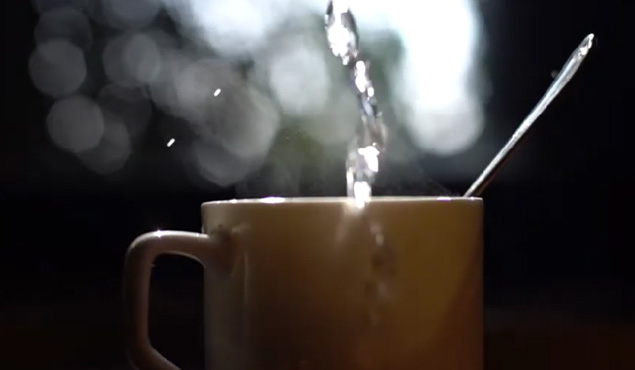
How to Fix
Never pour boiling water directly on the coffee beans. The recommended method is to boil the water to a maximum temperature between 195 and 205 degrees before adding the coffee beans. For this method, you would require an auto-temperature control kettle. If you are boiling the water in an old-fashioned kettle, let it reach the boiling point, then take it off and allow it to rest for 45 seconds before adding the coffee beans.
4. The beans are the problem
You can find plenty of beans in the market. Some are fruity, spicy, chocolaty, citrusy, earthy, and whatnot. Out of different coffee flavors, there are different qualities and grades available in coffee grounds. Low-grade Cheap quality beans may cost you less, but it gives you additional bitter flavor. Like Robusta, coffee is generally more affordable to produce, making it a popular choice. This second most commonly found coffee bean has an earthy bitter taste. Many instant coffees use 100% Robusta beans in their blend.
Coffee Beans are old:
In markets, you’ll find coffee beans roasted years back. They are less expensive but won’t give you the desired flavor either. Stale coffee grounds make your coffee taste bitter.
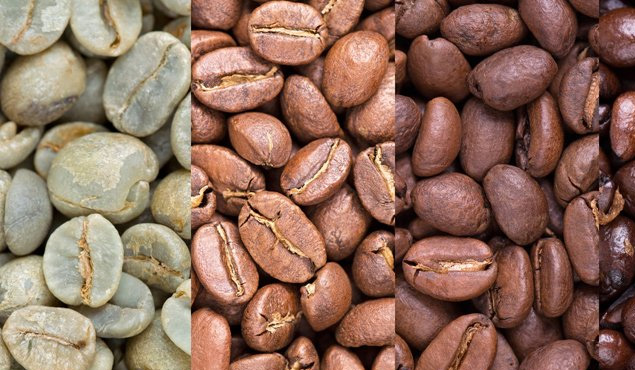
Over-Roasted Coffee Beans:
Coffee brewing is like cooking which requires equilibrium in everything. Many people choose dark roast for its rich and robust taste or its less caffeine content. However, dark roasts are oily, sometimes showing a bittersweet, toasty, or chocolaty flavor, and thus produce a bitter taste. Similarly, over-roasted coffee beans hold more chlorogenic acid, which makes coffee taste bitter.
How to Fix
If you want a coffee that will give your taste buds a punch of flavor, make coffee with 100% arabica beans. As they contain a sweet taste with a fruity flavor profile. You can identify them by their large oval shape and curved crease. You definitely see the label 100% premium Arabica on many gourmet brands.
However, arabica beans can cost you an arm and a leg. So, if you want a less expensive option, then go for the blends like a mix of arabica and Robusta, it will cost you less and give you a boost of flavors. Furthermore, always go for a medium roast and freshly roasted coffee beans. And preserved them in an air-tight jar for a week or two. If you have old coffee beans, re-roast them on low heat before use to save cost and reduce bitterness.
5. You Are Using Tap Water or distilled water
Another reason for bitter coffee could be tap water. Chemicals like chlorine are used to purify drinking water which is not suitable for the flavor of the coffee. It makes the oils in coffee grounds taste bitter. Additionally, in different states of America, tap water comes from hard groundwater. Hard water contains harsh chemicals and other compounds that add a bitter-flavored taste to your coffee.
And bicarbonates in the water helps to regulate acidity. If there is too much bicarbonates in your tap water, it could make the coffee taste bitter. As we are talking about balance in all so, it pertains to mentioning that using distilled water also causes a bad taste as it lacks many minerals which are essential to bringing out the flavor of the coffee.
How to Fix
Check your water’s hardness and PH level if you face this issue. Using a filter or bottled spring water for brewing coffee is good for the taste and your equipment as well.
Different roasts and coffee beans produce different tastes when reacting with water. According to a study, softer water is best for darker roasts, while harder water works better for lighter and brighter coffee grounds. This will help you achieve the best possible flavors.
6.You are using dirty brewing equipment.
Are you using Keurig, French press, or any other brewer? Possibly, your equipment has scale buildup or oil residue in the coffee pot that may have gone bad, causing your coffee to taste bitter.
How to fix
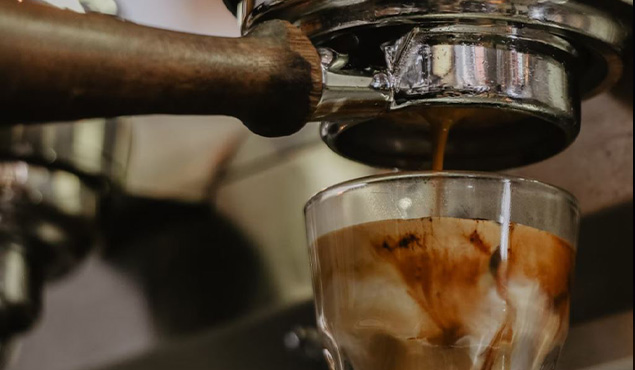
Sodium carbonate is an active ingredient in many cleaning solutions. You can use it to clean out oil and coffee residue buildup from coffee pots. You can also use liquid soap to dissolve oily residues. Mix liquid soap with vinegar, heat the combination, and wipe your brewing equipment afterward. This useful trick breaks down difficult oil deposition quickly and efficiently. To remove lime scale buildup, descale your device twice a year. You can use vinegar or citric acid for descaling.
Why Does Roasting Increase Bitter taste?
Roasting is the process of heating green coffee beans in pressurized conditions to develop the flavor and bring out a lovely aroma. In light and medium roasting, the coffee beans are heated at temperatures between 300 degrees Fahrenheit to 440 degrees Fahrenheit. In dark roasting, this temperature rises above 450 degrees Fahrenheit, which is a lot of heat. Dark roasting releases high amounts of oils, giving the coffee a rich and smoky taste. Dark roasts are much more bitter than light roasts.
Think of it simply as when you overcook your dessert, then what happens? You will get a burnt taste. The same is the case with dark roasts. Coffee is acidic in nature, and roasting at high temperatures would result in those acids giving off a harsh taste. Not to rule out, the darker the roast, the faster the solubility. Thus at your usual hot water temperature, dark-roasted beans will dissolve very quickly, and by the time you turn the heat off, it’s already too late.
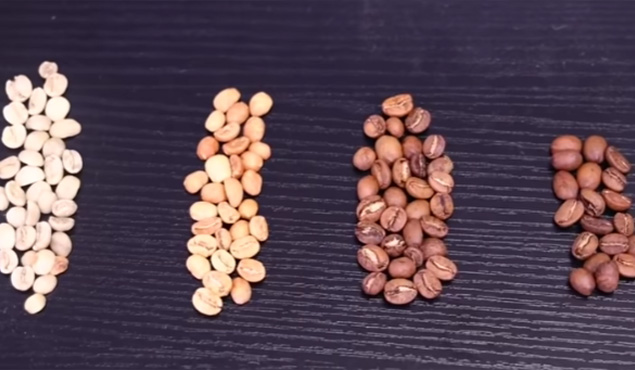
Does Adding Salt offset Bitterness?
Most of us who cook know that if a dish is bitter in taste, add some salt to it. But what is the magic behind this remedy? Salt consists of Sodium and Chloride ions. Sodium neutralizes the bitterness because our taste receptors react more to the salty flavor, thus suppressing the bitterness. But I am sure you would never want to exchange a bitter coffee for a salty one. Try adding a very small amount and tasting it until you get your desired flavor. A pinch of salt to a cup of coffee may be sufficient.
Wrap up
A balanced coffee flavor depends on a variety of aspects. The ratio of coffee and water, temperature, dark roast or light roast, brewing method, and even how the beans were stored all play an integral role in producing a flavorful, satisfying cup.
Additionally, the contact time between the grounds and water and grind size are also important considerations. A well-crafted cup is created when these components come together in harmony!
FAQ’s
Is Bitter Coffee OK to drink?
Bitter coffee is actually quite beneficial for one’s well-being. It is used to aid digestion and weight loss. It also positively affects health, such as anemia, nutrient absorption, stimulating immune function, and more.
Thus, it is not only okay to drink bitten coffee, but it could be good to cop with several medical conditions.
Does Bitter Coffee mean stronger?
Many novice coffee drinkers may perceive stronger coffee tastes bitter. But for coffee lovers, bitter coffee might be a delicacy for their taste buds. A bitter taste helps to explore the deep flavors of coffee.
Does caffeine make coffee bitter?
Generally it is considered that caffeine makes coffee taste bitter, but it is not true, as decaffeinated coffees also taste bitter. Dark roast, which makes stronger coffee, is actually less caffeinated.
Why is Starbucks coffee so bitter?
Starbucks coffee is often criticized for being too bitter. This is probably because they use dark roast coffee beans, which have an inherently bitter flavor. Dark roast coffee beans are easier to get a consistent flavor in less time than light roast coffee beans.
What coffee is strong but not bitter?
When it comes to coffee, many people believe that cold brew is the best option because it is less bitter by default. However, getting a bitter cold brew is possible if you over-steep it.
Other less bitter coffee drinks options include lattes and cappuccinos, as the milk offsets the bitterness.
However, If you want black coffee, roast your beans very light. The coffee will taste quite acidic and fruity with very little bitterness.
Remember to use freshly roasted coffee grounds, which is also crucial for the acid/bitter ratio.
Which type of coffee is the tastiest?
Arabica coffee beans are considered to brew the best and tastiest coffee. They used to make 60-70% of the world’s coffee grounds.
It has a heavenly fresh aroma, blueberry tones, and a fruity, smooth, and sweet flavor.
